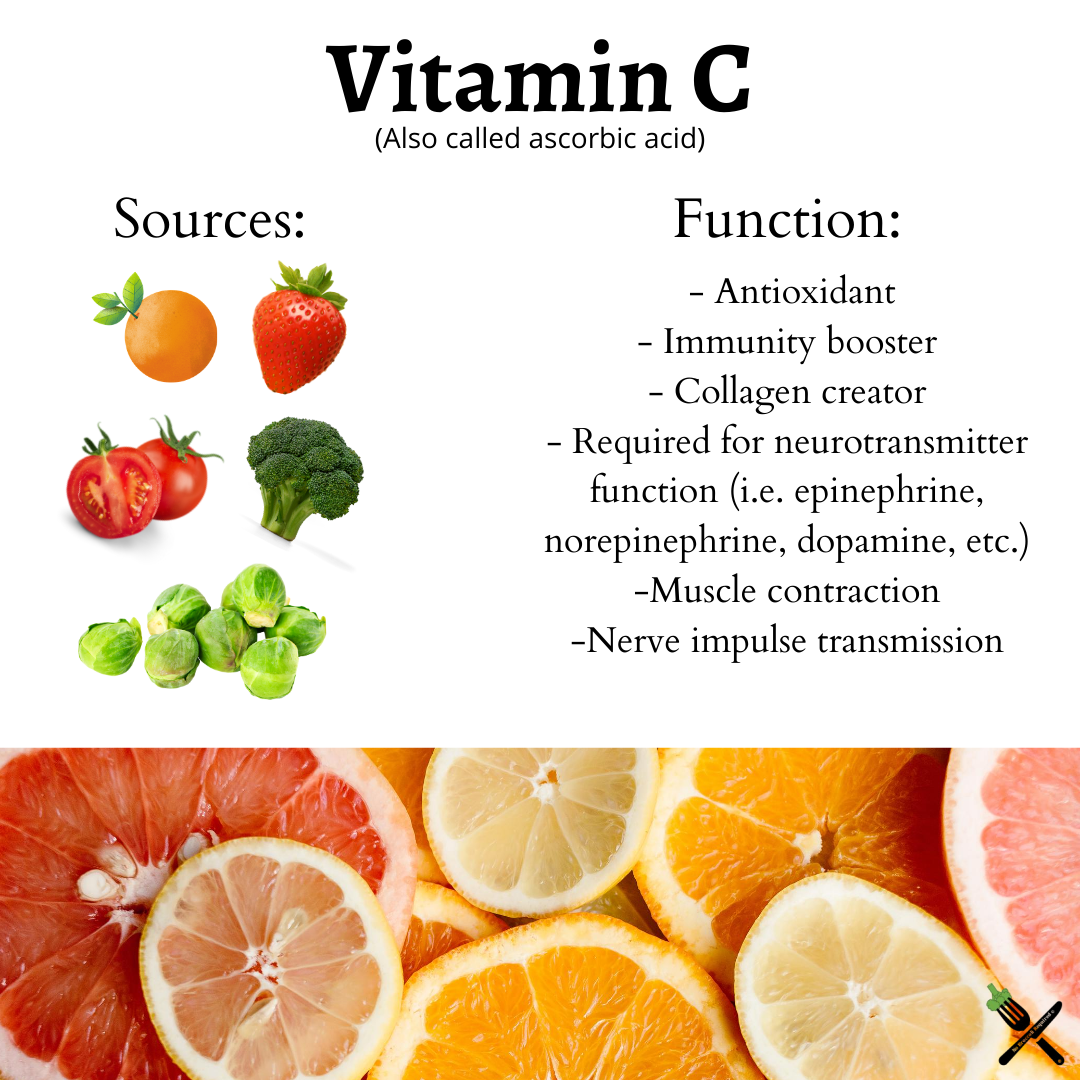Vitamin C
Vitamin C is also commonly referred to as ascorbic acid. Vitamin C is a water-soluble vitamin and plays an important role in the body. Water-soluble vitamins dissolve in water and are easily absorbed in body tissues. Excess water-soluble vitamins are excreted in urine.
But first, where can you find vitamin C?
Fruit sources of vitamin C: oranges, grapefruit, cantaloupe, kiwi, citrus, guava, papaya, tomatoes and strawberries
Vegetables sources of vitamin C: broccoli, brussel sprouts, cauliflower, potatoes, peppers, peas and parsley
What role does vitamin C play in the body?
Vitamin C is an important antioxidant and may help protect the body from free radical damage and oxidative stress. Vitamin C also plays a role in collagen synthesis and carnitine synthesis - i.e. a deficiency in vitamin C may lead to fatigue and poor wound healing. Additionally, vitamin C may help to strengthen gums and protect the oral cavity from bleeding gums, tooth decay, gingivitis, etc. Vitamin C is also an important player in catecholamine synthesis (i.e. neurotransmitter synthesis, specifically epinephrine, norepinephrine, and dopamine). Therefore, vitamin C may play a vital role in healthy brain function. Vitamin C has many more important functions in the body, but these are a few of my favorite.
What are the symptoms of vitamin C deficiency?
The most commonly known deficiency of vitamin C is scurvy. Vitamin C deficiency may also lead to slow wound healing, muscular and nervous irritability, bleeding gums, tooth decay, periodontal disease, muscle spasms/cramps, depression, fatigue, etc.
Can vitamin C be toxic if too much is consumed?
Yes. When high doses of vitamin C are consumed, one may experience abdominal pain and diarrhea. Additionally, high doses of vitamin C may lead to iron toxicity in those with iron storage disorders - as vitamin C has been suggested to increase iron absorption. The Tolerable Upper Limit of vitamin C is 2,000mg/day.
Disclaimer: All information on this website is for educational purposes only and is not intended to treat, cure or diagnose. Individual dietary requirements vary. Consult with a healthcare professional before undergoing any significant dietary changes.
References:
https://www.ncbi.nlm.nih.gov/pmc/articles/PMC2649700/
https://www.ncbi.nlm.nih.gov/pmc/articles/PMC3725125/
https://lpi.oregonstate.edu/mic/vitamins/vitamin-C#function
SpectraCell Laboratories Nutrient Function
